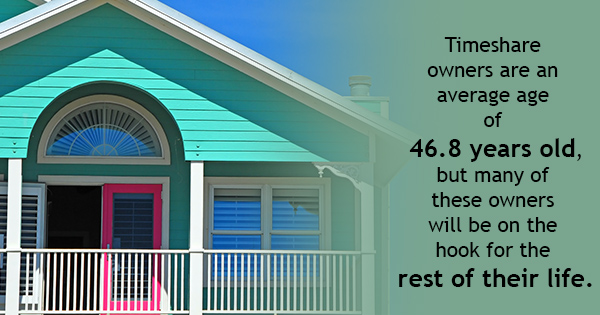Purchasing a house can be both a fantastic and demanding process at the same time. But tackling the big cost of a home in one fell swoop is typically tough for a specific or family to manage. That's where mortgages been available in. Usually in exchange for a deposit, a lender will grant you a mortgage to enable you to fund your house with a rate of interest attached.
Comparable to other types of loans, home mortgages require monthly payments a process called amortization whereby you lower the financial obligation you owe with time. The interest rate you get will be mostly reliant on your credit rating, in addition to the size of your preliminary deposit. Furthermore, if you stop paying your home loan, the lending institution can foreclose on your home.
Down payment requirements vary from loan provider to lending institution and loan to loan, but they usually aren't higher than 20%. The principal balance related to your mortgage is basically the amount you owe the loan provider. Lenders won't loan you cash for complimentary. The rate of interest you receive determines just how much additional you'll pay beyond simply your principal balance.
Some examples of these are examination charges, origination charges and title insurance coverage. Home purchasers who come up brief on their down payment will likely require to purchase home mortgage insurance coverage. Depending upon the kind of loan you get, this might be available in the form of private home loan insurance coverage (PMI) or federal government loan insurance.
The application procedure asks questions about aspects like your estimated down payment quantity, employment, annual earnings, credit report, properties and debt. This assists the loan provider figure out the maximum loan quantity you can get and the conditions under which you'll get it. Residential mortgages consist of 2 essential kinds. These are fixed-rate home loans and variable-rate mortgages (ARMs).
A fixed-rate mortgage needs the borrower to pay the very same interest rate throughout the period of the loan. Due to the fact that of this, property buyers will be able to prevent fluctuating market trends. For the most part, this style of home loan comes with either a 15- or 30-year term. Some loan providers might have proprietary terms, however.
Then, depending on market adjustments, your rate will modify generally on a yearly basis. That makes ARMs substantially more unpredictable than their fixed-rate counterpart. Here are a couple examples of ARMs: The "5" suggests your preliminary rate will last for five years, while the "1" suggests your rate will reset every year.
Aside from basic home loan types, federal government companies provide their own loans to homebuyers. Three crucial federal government companies offer these services: the Federal Real Estate Administration (FHA), the U.S. Department of Agriculture (USDA) and the U.S. Department of Veterans Affairs (VA). FHA loans are distinct because they enable homebuyers to pay simply a 3.5% deposit, which is far listed below the standard 20%.
In fact, even those who have actually gone bankrupt can get approved. You can only achieve a USDA loan if you're wanting to purchase a home in a "backwoods," which is designated by the USDA itself. These fixed-rate home loans often feature no down payment whatsoever. Due to the fact that the VA provides these home loans, they are entirely offered to military service-members, retired service-members and some enduring military spouses.
Jumbo loans are non-conforming home loans. This means that they do not fall within the maximum adhering loan limitations federal government companies set. More particularly, loans for single-family homes are capped at $484,350. If your home mortgage exceeds those bounds, you require to use for a jumbo loan. If you're prepared to make the jump into homeownership, you'll likely need to get a home loan.
There's a wide variety of business that fit under this heading, including banks, credit unions and online lenders, like Rocket Home loan and SoFi. These lenders can then be split into 2 subcategories: retail lenders and direct lenders. The only important difference in between them is that retail lending institutions use monetary items beyond simply home mortgages, while direct lenders focus on mortgages.

Contrary to https://penzu.com/p/cf9d476a the large-scale approach used by mortgage bankers, portfolio loan providers lend their own cash by their own guidelines. This could be helpful, as these lenders aren't bound by the very same strict policies and investor interests that home loan bankers frequently are. If you require a jumbo loan, it might be much easier to get one through a portfolio lender.
Home loans from these loan providers tend to have high rate of interest and minimum down payments, however. As an outcome, financiers wanting to fix and turn homes on a short-term basis are their most typical customers. Like their name suggests, wholesale loan providers supply moneying loans to banks, mortgage brokers and other outside loan providers.
Oftentimes, you'll see the name of the wholesale lending institution noted on your home loan documentation rather than your broker. Once your mortgage is total, a reporter lending institution will seek to sell it to a sponsor, which is an external investor. In order to buy a loan, sponsors must make sure that it fulfills their criteria.
By offering the home mortgages, correspondent lending institutions are basically guaranteeing they generate income, as the chance that a property buyer defaults is gotten rid of. Home loans can be really helpful if you wish to purchase a house and can't manage the overall cost upfront. Though the kinds of lenders that use them differ, it's eventually up to you to decide whether a specific home mortgage, or loan provider, is for you.